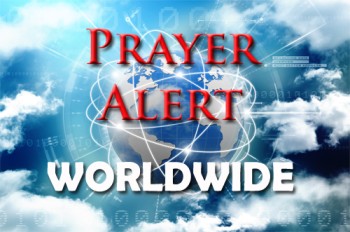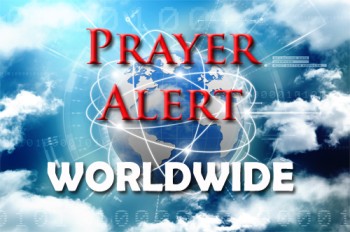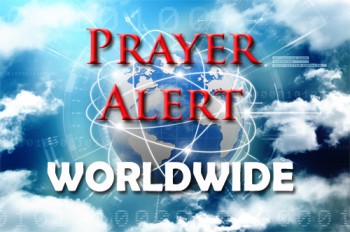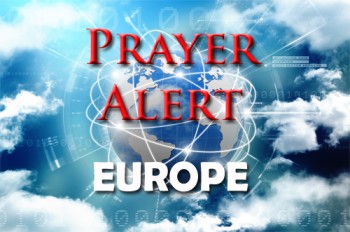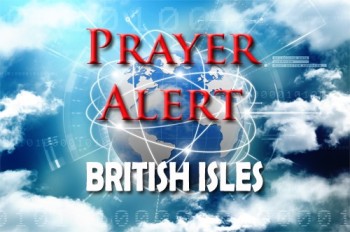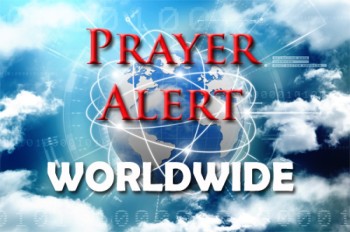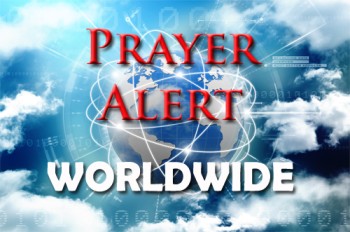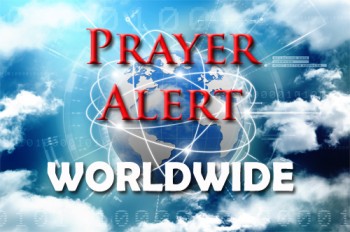Displaying items by tag: Rwanda
Rwanda: talks with USA about receiving immigrants
Rwanda has confirmed it is in early discussions with the Trump administration about potentially receiving immigrants deported from the USA. Foreign minister Olivier Nduhungirehe stated the talks are ongoing but not finalised. The move follows US efforts to find foreign partners for deportations as part of Trump’s expansive immigration enforcement strategy, which includes invoking the 1798 Alien Enemies Act - granting the president wartime authority to deport noncitizens without due process. In April, the USA deported an Iraqi man accused of IS ties to Rwanda. Reports also suggest that migrants with criminal records might be sent to Rwanda or Libya. In 2022 Rwanda had agreed to accept asylum-seekers from the UK, but Keir Starmer’s government scrapped the deal due to legal and human rights concerns. A spokesperson for UNHCR has said: ‘People fleeing war, conflict and persecution deserve compassion and empathy. They should not be traded like commodities and transferred abroad for processing.’
DRC: peacekeeping force decides to withdraw
The Southern African Development Community (SADC) has begun withdrawing its peacekeeping force from eastern Democratic Republic of Congo (DRC) through Rwanda. The troops, from South Africa, Malawi, and Tanzania are exiting Goma in North Kivu and heading to Tanzania for repatriation, with all personnel expected to leave by 30 May. The withdrawal follows heavy casualties, including at least seventeen soldiers killed during clashes with M23 rebels, who have since taken Goma and Bukavu. Rwanda, accused by the UN and the DRC of backing M23, denies any involvement, though the rebels reportedly receive support from 4,000 Rwandan troops. The DRC government has called for a nationwide military mobilisation as the rebels threaten to march on Kinshasa, over a thousand miles away. The SADC mission, deployed in 2023, aimed to stabilise the mineral-rich region but struggled amid the worsening crisis. With over seven million displaced, eastern Congo is one of the world's most severe humanitarian emergencies.
DRC: fighting between army and Rwandan-backed rebels
Fighting persists between the Congolese army and M23 rebels in Goma, in the east of the Democratic Republic of Congo (DRC), leaving control of the city uncertain. The M23, which according to the UN is supported by thousands of Rwandan soldiers, claims to hold the provincial capital, though Congolese authorities dispute this. Rebel patrols have been reported in western Goma, while Congolese forces are reportedly guarding the airport. With independent access to parts of the city restricted and communication infrastructure disrupted, reliable updates are scarce. The fighting has forced thousands of civilians to flee. The volatile region is rich in minerals that are critical to much of the world’s technology. Kenyan president William Ruto, describing the situation as ‘very complicated’, said that it could only be solved diplomatically: see
France: author guilty of downplaying Rwandan genocide
French-Cameroonian author Charles Onana has been found guilty of downplaying the Rwandan genocide, which resulted in the deaths of approximately 800,000 people in 1994. He was fined €8,400, and his publisher was fined €5,000. The two must also pay €11,000 in compensation to human rights organisations which filed the lawsuit. A Paris court ruled that Onana’s book, published in 2019, trivialised and contested the genocide in an ‘outrageous manner’, violating France's laws against genocide denial and incitement to hatred. The book suggested that the narrative of a planned genocide by the Hutu government was a ‘scam’, a claim criticised for distorting historical facts. Rwanda's foreign minister has welcomed the court’s decision as a victory. This is the first time in Europe that those denying the genocide have been punished under French law.
Asylum-seekers to be paid to move to Rwanda?
The Government is considering a proposal to offer up to £3,000 to failed asylum-seekers to relocate voluntarily to Rwanda. This plan, aimed at reducing the backlog of asylum applications, is separate from the controversial 'Rwanda bill,' which seeks to deport most asylum-seekers to Rwanda. The new scheme builds on existing policies offering financial assistance for voluntary returns to home countries. In the past year, 19,000 people have voluntarily left the UK under such schemes. The new proposal allows recipients of the financial package to live in Rwanda, a country the Government deems safe despite concerns about political oppression. Under this plan rejected asylum-seekers who currently cannot work legally in the UK would be allowed to work in Rwanda and receive five years of additional support. The government’s Rwanda bill has already been ruled unlawful by the Supreme Court for violating human rights laws. Rishi Sunak is now pushing legislation to designate Rwanda as a safe country for asylum-seekers, hoping to circumvent legal opposition.
Rishi Sunak vows emergency legislation after Rwanda ruling
Rishi Sunak has pledged to enact emergency legislation and forge a new treaty with Rwanda to ensure the continuation of his key asylum policy, despite the Supreme Court's ruling against it. The plan had been to deport illegal asylum seekers to Rwanda, but the court expressed concerns that they might face the risk of being returned to their countries of origin, violating international law. Sunak now plans to convert the Rwanda agreement into a treaty to guarantee that relocated asylum seekers remain there. Controversially, he also wants to designate Rwanda as 'safe,' which would not be challengeable in UK courts. However, this legislation would not supersede the European Court of Human Rights, which could still block the flights. The PM’s stance raises significant questions about the UK's adherence to human rights laws.
DRC: Conflict and Christians
On 25th January, Rwanda's military fired at a Congolese fighter jet that had violated their airspace for the third time recently. The DRC called the shooting ‘an act of war.’ This incident comes a week before Pope Francis is to make the first papal visit to Kinshasa since 1985. The Pope plans to shine a spotlight on the bloodshed of the conflict in eastern DRC, one of the world's most resource-rich yet conflict-ridden regions. On 15th January an improvised explosive device ripped through the congregation at a baptismal service conducted by a blind pastor. It severed limbs and killed at least 17 people. This attack in North Kivu province is just the latest terrorist outrage in the DRC by the Allied Democratic Forces, one of the most dangerous of dozens of armed groups in eastern DRC. As well as physical injuries, terrorist violence has left DRC Christians suffering serious emotional trauma.
Global: digital repression
Governments are blocking swaths of the internet. Pro-democracy activist Ko Jimmy was executed after condemning Myanmar’s military coup online. Idamange Yvonne was sentenced to 15 years in prison for YouTube videos criticising Rwanda’s repressive president. Nicaraguan authorities sentenced journalist Miguel Urbina to nine years in prison for Facebook posts and tweets they deemed threatening to national integrity. Siarhei Tsikhanouski, who ran a YouTube channel criticising Belarus’s government, was jailed for 18 years for inciting unrest. These are only a fraction of the cases in an internet freedom survey by Freedom House, which stated, ‘The same rights protected offline should also be protected online. Human rights are restricted online in 70 countries and 2022 marked the 12th consecutive year of decline in internet freedom’. But it also found that when societies push back against repression, under the right conditions, they can win. Pray for the digital rights groups who research, advocate against, and bring strategic litigation cases to overturn repression online.
Rwanda migrant scheme does not deter migrants
In April, the UK said some people arriving on small boats from France to claim asylum would be sent to Rwanda - a policy meant to deter dangerous channel journeys. But MP Diana Johnson, chair of the home affairs committee, said it ‘appears to have gone unnoticed’ by migrants. A group of MPs said there is ‘no clear evidence’ that the UK's plan to send asylum seekers to Rwanda will stop risky Channel crossings and numbers have significantly increased since it was announced.
East Africa: triple tragedy
Torrential rains causing floods and landslides displaced 100,000 people and killed about 200 in Kenya. Floods destroyed 8,000 acres of crops, and the extreme rainfall will continue until the end of May. In Uganda, a river burst its banks, causing people to flee for safety. The waters of Lake Victoria have risen to unprecedented heights, forcing shoreline communities to abandon their homes. Rwanda, too, has seen houses, roads, and crops destroyed, and many killed by mudslides. At the same time, trillions of locusts have descended on the region. They can travel over 100 miles a day. There are 18 separate swarms in Kenya at present, and weather conditions are expected to favour breeding, so that a third generation could hatch in June and July. Added to these two tragedies, coronavirus is spreading among huge numbers of displaced people and closed borders are delaying delivery of pesticides to locust-affected areas.
